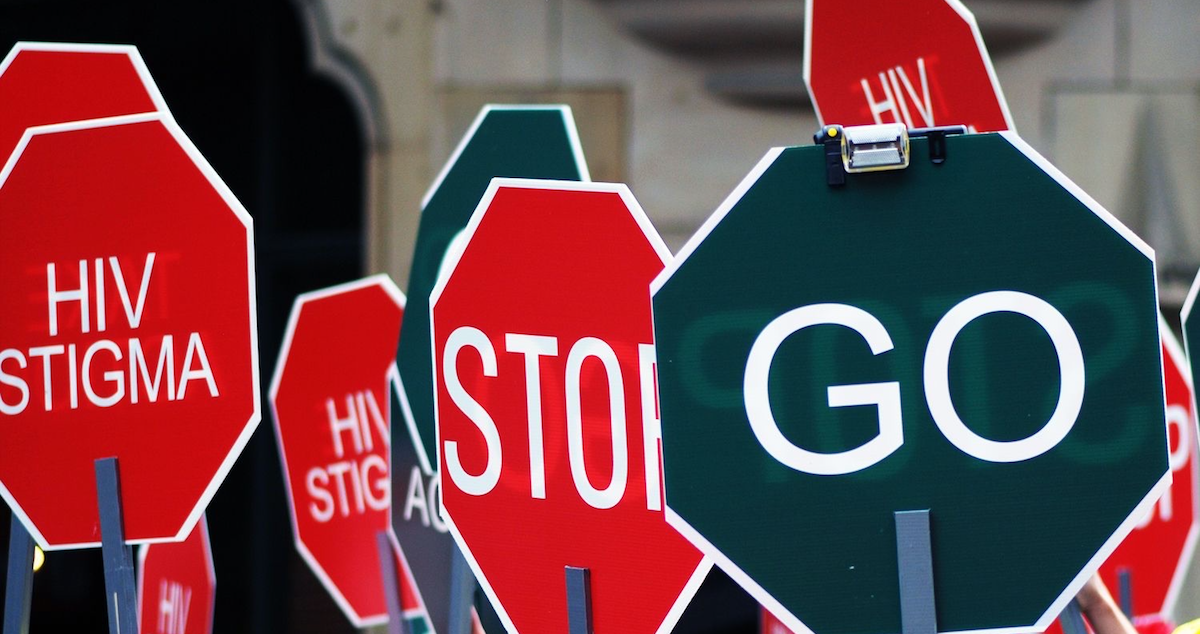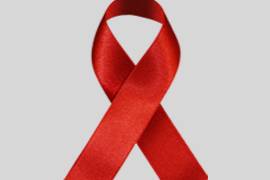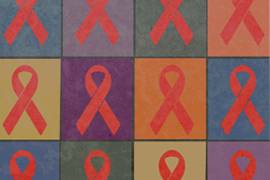This blog was co-authored by Law Fellow Kara Ingelhart and Counsel and HIV Project Director Scott Schoettes.
The fourth annual National Day of Action to End Violence Against Women Living with HIV (“Day of Action”) could not be more timely with the recent allusions to “quarantining” people living with HIV, and long-overdue attention finally be paid to issues of violence and harassment against women. The Positive Women’s Network USA (PWN-USA), an organization dedicated to addressing the needs of women living with HIV, organized this Day of Action in response to the high rates of interpersonal violence and brutality faced by women living with HIV. The Day of Action was created to support the efforts of advocates across the country fighting to end the culture of violence that so disparately affects women living with HIV.
Like PWN-USA, Lambda Legal understands that addressing the complex public health issue of HIV requires advocacy directed through an intersectional lens. Although violence against women living with HIV may reflect similar themes of violence against women in general, it also provides a distinct opportunity to recognize, assess, and tackle the ways in which gender identity and gender expression—as well as other social markers such as race, ethnicity, socio-economic class, age, and disability—intersect. The layering of multiple marginalized identities can compound the effects of inequality. Examination of these intersectional factors show us how and why living with HIV is a predictor of experiencing violence by partners, family members, community members, service providers, law enforcement, and others. Eradicating violence against women living with HIV and the culture of violence is critical to ending HIV transmission as well as HIV-related stigma, illness, and mortality.
Ending the systemic and particularized violence embodied by HIV criminalization laws.
Lambda Legal is proud to have been a key player—along with PWN-USA—in the recent passage of California’s SB 239, a bill to halt unjustified criminal prosecutions of people living with HIV in California. When the law goes into effect, only people with the criminal intend to transmit HIV or who are engaged in a sexual assault will be subject to criminal penalties based on their HIV status. This is a common sense approach supported by public health experts. It will help create an environment in which more people are willing to get tested for HIV, to obtain the medical treatment they need to protect their own health and the health of others, and to discuss their HIV status with sexual partners.
While many people believe that HIV disclosure laws are protective of women, just the opposite is true. A report from the Williams Institute established that women were disproportionately the target of law enforcement under these laws. Though women represent only 13% of people living with HIV in California, they comprised 43% of people arrested under one of the HIV-specific criminal laws in the state. Furthermore, anecdotal accounts establish that the current laws have been used by some men to control and coerce a woman with whom they are in an abusive relationship, threatening to falsely claim non-disclosure and have their partners jailed if the partner does not comply with their directives. Some women have even chosen not to report a sexual assault for fear that the HIV criminal laws will be turned against them. Lambda Legal is proud to have been a part of taking away this tool of oppression wielded by both the state and by abusive sexual partners.
Criminalization of sex work leads to higher rates of violence and HIV transmission.
Significantly, the HIV-specific criminal law that was used most frequently in California was the law that transformed sex work from a misdemeanor to a felony for people living with HIV. The Williams Institute found that more than 95% of the arrests or charges under HIV-specific criminal laws through 2014 were a result of the provision related to sex work. (And most people were charged under the section pertaining to “solicitation” and therefore had not engaged in any conduct through which it was even possible to transmit HIV!) Our work on SB 239 dovetails nicely with the work that Lambda Legal is currently doing to support those challenging the validity of the sex work laws altogether.
Lambda Legal is supporting the Erotic Service Provider Legal, Education & Research Project's (ESPLERP) constitutional challenge to California’s laws pertaining to prostitution and solicitation through a “friend-of-the-court” brief. Our brief explains that— contrary to the government’s assertions—making sex work illegal actually undermines public health, increasing both violence against women as well as the risk of HIV transmission. When the government criminalizes sex work, people involved in the sex trade fear law enforcement. Criminalization deters people frequently targeted by police—often poor, often people of color, often transgender women—from carrying and using condoms, a cheap and effective method of preventing HIV and other sexually transmitted infections, because those condoms may be used as evidence against them. Sex workers are more likely to be targeted for violence, and less likely to get help if they are attacked, because explaining what occurred will likely reveal their engagement in criminalized conduct. They are also less likely to go to doctors and clinics or to be forthcoming about their activities with healthcare professionals when the work they do can lead to being charged with a crime. These impacts can in turn make workers more vulnerable to the force and coercion that are the hallmarks of trafficking. For all of these reasons, criminalizing sex worsens public health—for both sellers and buyers—rather than protecting or improving it.
Lambda Legal is committed to doing its part to stop violence against women, including the horrific violence visited upon transgender women in this country. On this day, we stand with PWN-USA in calling out the specific harms perpetrated against women living with and at higher risk for HIV. Every day, we will work to help dismantle the legal systems of oppression that allow and advance the violence to which the most marginalized of women are subjected.





